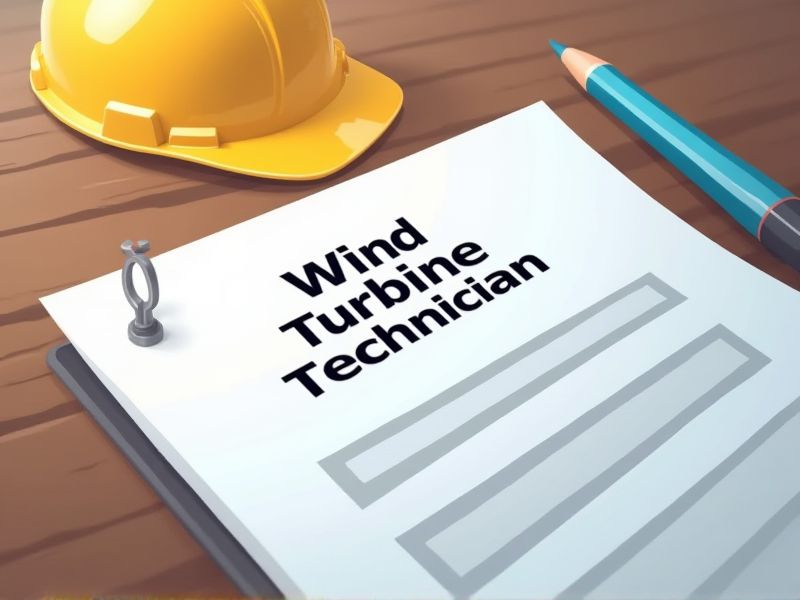
The wind energy sector demands highly skilled professionals to ensure the efficient operation and maintenance of wind turbines. Certifications for Wind Turbine Technicians are essential because they verify a technician's knowledge of safety standards and complex machinery. As turbines grow in technological complexity, proper certifications demonstrate a technician's competence in handling high-risk and intricate systems. Important certifications are necessary for those seeking to become certified Wind Turbine Technicians.
GWO Basic Safety Training
GWO Basic Safety Training is essential for Wind Turbine Technicians because it provides foundational knowledge crucial for safely navigating the unique hazards inherent in wind energy environments. This training ensures that technicians are adept at handling emergencies like fire or injury while working at great heights. Understanding the updated safety protocols minimizes accident risks, enhancing both personal and team safety onsite. Employers often mandate such certifications, influencing hiring decisions and operational standards within the industry.
GWO Working at Heights
Wind Turbine Technicians face significant risks related to falls due to the nature of their work at high elevations. GWO Working at Heights training equips them with the skills and knowledge to safely navigate these hazardous environments. Training includes the use of personal protective equipment and the implementation of safety procedures to minimize accidents. Certification ensures compliance with industry safety standards, reducing the likelihood of injuries and fatalities.
GWO Manual Handling
GWO Manual Handling training reduces injury risks by teaching Wind Turbine Technicians proper lifting and carrying techniques. This training enhances technicians' ability to handle large, heavy turbine components safely, promoting longevity in their career. It ensures compliance with industry safety standards, which can prevent costly workplace incidents. Proper manual handling minimizes downtime caused by injuries, enabling more efficient maintenance operations on wind turbines.
GWO First Aid
Wind turbine technicians often work at significant heights, where accidents can lead to severe injuries; GWO First Aid training equips them with crucial skills to respond effectively in emergencies. The remote locations of many wind farms increase response times for professional medical help, necessitating technicians to have immediate first aid capabilities. GWO First Aid standards, tailored for the unique environment of wind turbines, address specific risks such as falls and electrical injuries. Companies prioritize GWO First Aid certification to enhance safety protocols and reduce workplace incident-related downtime.
Wind Energy Technician Certification
Wind Energy Technician Certification ensures that technicians possess the necessary skills and knowledge to safely and efficiently maintain wind turbines. It provides standardized training and validation, which increases employer confidence and job prospects for technicians. Certification often results in adherence to industry safety standards and best practices, reducing the incidence of accidents and equipment failure. Certified technicians tend to have better opportunities for career advancement and higher earning potential in the renewable energy sector.
Electrical Wiring Safety Certification
Electrical Wiring Safety Certification ensures that Wind Turbine Technicians understand the electrical standards necessary for safe operation and maintenance of turbines. Compliance with such certification reduces the risk of accidents related to electrical mishandling. This certification also validates the technician's capability to interpret complex wiring diagrams essential in wind energy systems. Employers often require this certification as a condition of employment to ensure adherence to industry safety standards.
High Voltage Electrical Safety Certification
Wind turbines operate at high voltages, creating significant electrical hazards that technicians must learn to manage safely through certification. High Voltage Electrical Safety Certification ensures technicians understand and mitigate risks associated with electrical shock and arc flash incidents. Proper certification minimizes downtime and maintenance costs by enhancing technicians' competence and confidence in handling electrical systems. Regulatory standards often require such certifications to ensure compliance, protecting both technicians and the broader energy infrastructure from avoidable incidents.
OSHA 10 Construction Safety Certification
OSHA 10 Construction Safety Certification provides essential knowledge on occupational safety, which directly reduces the risk of accidents for Wind Turbine Technicians working at heights. The certification aligns with industry regulations, ensuring wind turbine technicians can efficiently adhere to safety standards. Employers often prioritize technicians with OSHA certification, enhancing job prospects and career advancement in the renewable energy sector. Enhanced safety training strengthens technicians' capabilities to address potential hazards and emergencies, improving overall worksite safety.
Lockout/Tagout (LOTO) Certification
Lockout/Tagout (LOTO) certification is essential for wind turbine technicians to ensure they can safely de-energize and control equipment, preventing unexpected start-ups during maintenance. In the wind energy sector, these technicians often work in high-risk environments where accidental activation of machinery can lead to severe injuries or fatalities. The certification provides them with the necessary knowledge and protocols to mitigate these risks effectively. Employers also require this certification to comply with regulatory safety standards, reducing liability and enhancing workplace safety.
Confined Space Entry Training Certification
Confined Space Entry Training Certification is essential for wind turbine technicians because work inside turbine nacelles often involves tight, restricted areas. Without this training, the risk of accidents and injuries increases significantly due to the challenging environment. Certification ensures that technicians are knowledgeable about safety protocols and can effectively use specialized equipment to operate safely. This knowledge reduces operational downtime and liability costs for companies by minimizing workplace incidents.
Summary
When you become certified as a Wind Turbine Technician, your career prospects significantly improve. Certification demonstrates your expertise, increasing your chances of securing higher-paying positions. Employers are more likely to trust and hire technicians who have validated skills through certification. As a result, you can expect greater job stability and opportunities for advancement in the renewable energy sector.
